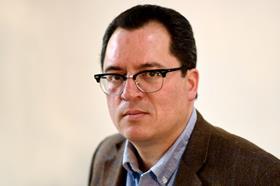Don’t reach for the sky, aim for the ceiling.

That is the exhortation that I think best characterises the approach set out by the government’s social mobility tsar Katharine Birbalsingh. Is she saying things that the legal sector should be listening to as it considers its own contribution to social mobility?
Birbalsingh’s appointment last month saw the former teacher living up to her reputation for controversy. Working class people, the Oxford graduate said, should aim lower than Oxbridge. Poor children should take ‘smaller steps’ rather than aiming for elite universities, making progress ‘up the ladder’. This puts a ceiling on ambition.
I related a similar message delivered by Bim Afomali MP to a City audience last year. Afolami (Eton, Oxford, Freshfields Bruckhaus Deringer), who said it was wrong to worry about the diversity of ‘the top table’.
A multi-generational strategy was also the rate of change preferred by Lord Sumption as he eyed the gender balance of the Supreme Court.
How does this gradualist lens, and an injunction to give a pass to a lack of diversity at ‘the top’, transpose to the legal profession?
Awkwardly, is the answer.
Let’s consider one of law’s glittering prizes – superannuated City partnerships. Does it matter that only 1% of City law firm partners are black? According to this way of thinking, that’s not a problem if black lawyers are partners elsewhere.
Should aspiring lawyers who qualified for free school meals deliberately lower their sights from a training contract at a magic circle firm?
A majority of the judges at the Old Bailey are now women. The same is true of various tribunals. Should that be enough, and thoughts of a more balanced Supreme Court be abandoned?
Where Birbalsingh is right is in noting that singular inspiring stories of people who reach elite institutions is not enough. We cannot focus only on Oxford and Cambridge, the magic circle, the boardroom and the Supreme Court – the rest of the system matters too.
I know plenty of people who think it is frustrating to have to invoke a business case for diversity – it is simply the right thing that society, a university, a profession, a firm, should be open to all regardless of background.
But the research showing that diverse organisations do better, and diverse boardrooms make better decisions, is detailed, extensive and credible.
That is why Cambridge colleges won’t thank Birbalsingh for telling clever students from poor backgrounds to apply elsewhere. They hope to attract those students, not those students’ grandchildren.
It is why City law firms, with uneven success, are now putting serious effort into attracting, retaining and progressing to partnership under-represented groups.
And it is why the judiciary believes it needs to do better with regard to the imbalance seen in its senior ranks.
Opportunity, money and power reside in the elite places we are being urged to pay less attention to – in law as elsewhere. Why should anyone obey the instruction to look the other way?
This article is now closed for comment.




























6 Readers' comments